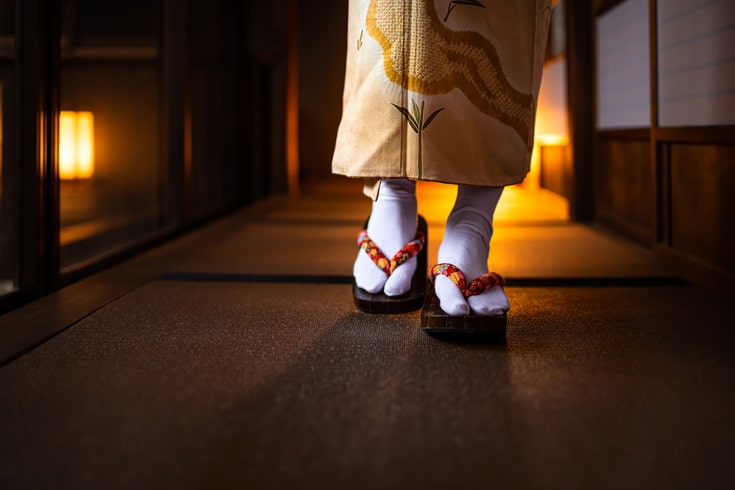Can Retweeting Be Defamatory? 3 Critical Situations to Beware of Defamation on X (Formerly Twitter)

X (formerly known as Twitter) is a convenient social networking service that allows many users to interact anonymously. However, if used improperly, it can lead to defamation. But what exactly constitutes defamation on this platform?
Here, we will explain the potential for defamation in three different scenarios on X (formerly known as Twitter): ‘posting,’ ‘retweeting,’ and ‘direct messaging’ (DM).
What is Defamation?

Under the Japanese Penal Code, defamation is defined as follows:
Japanese Penal Code (刑法) Article 230, Paragraph 1
Any person who publicly identifies facts and thereby damages the reputation of another person shall be punished with imprisonment with or without work for not more than 3 years or a fine of not more than 500,000 yen, regardless of whether the facts are true or false.
In other words, defamation is established when someone ‘publicly,’ ‘identifies facts,’ and ‘damages a person’s reputation.’
‘Publicly’ means ‘to an unspecified or large number of people,’ and it is considered sufficient if either ‘unspecified’ or ‘large number’ is met. Expressions on the internet are generally recognized as being ‘public.’
In legal terms, the words ‘fact’ and ‘truth’ are used with distinctly different meanings. For defamation to be established, the content of the expression must be a ‘fact,’ which means ‘a specific matter’ that can be verified as true or false with evidence.
‘Reputation’ refers to the objective social evaluation received from society regarding a person’s personality, virtue, fame, credit, and other personal values. An act that lowers this social evaluation constitutes defamation.
Related article: What is the Decline in Social Reputation Necessary for Defamation? Explained by a Lawyer[ja]
Defamation and Posts on X (Formerly Twitter)
In a defamation case involving X (formerly Twitter), let’s examine an instance where the plaintiff, who serves as the CEO of Company A, filed a claim for damages against the defendant, a former part-time employee of Company A, alleging that their reputation was infringed upon through articles posted on X (formerly Twitter) and Ameba Blog.
The defendant had posted articles alleging that Company A, led by the plaintiff, was engaged in transactions with organized crime-related companies, and that both the plaintiff and their daughter were closely involved with organized crime. The posts also claimed that the plaintiff used the company’s assets to buy roles for their daughter, who is a talent, and that the plaintiff was involved in human trafficking, money laundering, murder, or acts that could be equated with such crimes. The court recognized that these articles could lead the general readership to believe that the stated facts were true, thereby diminishing the plaintiff’s social reputation.
Furthermore, the court found that there was insufficient evidence to believe these allegations were true. The majority of the evidence presented by the defendant consisted of other internet posts and tabloid articles, which upon scrutiny, were mostly speculative rumors about the entertainment industry and beyond. Additionally, some articles had unclear origins or connections to the plaintiff, making it impossible to accept the aforementioned facts as true. The court also noted that the defendant did not have sufficiently credible materials or grounds to reasonably believe in the truth of these facts. As a result, the court acknowledged the defamation and ordered the defendant to pay 1 million yen in compensation for emotional distress and 100,000 yen for attorney fees, totaling 1.1 million yen (Tokyo District Court, September 12, 2019).
This case is a typical example of defamation through posts on X (formerly Twitter).
Defamation and “Retweets” on X (formerly Twitter)

On X (formerly Twitter), users can not only post their own statements but also share others’ posts (original tweets) by quoting them in a retweet.
Reference: X Terms of Service[ja]
When retweeting, there are two methods: one is to simply forward the original tweet without adding any personal comment (simple retweet), and the other is to add a personal comment and forward it under one’s own name (quote retweet). There have been instances where a simple retweet on X (formerly Twitter) was deemed to constitute defamation, and thus, individuals who merely performed a simple retweet were held liable for defamation.
Simple Retweets and Defamation
The defendant in this case is a journalist with over 180,000 followers, while the plaintiff is a former Mayor of Osaka and Governor of the prefecture. The defendant found an article on X (former Twitter) stating, “When he became Governor of Osaka Prefecture in his 30s, he spoke insolently to senior executives who were over 20 years his senior, driving them to suicide. Has he forgotten that? Shame on him!” and simply retweeted it on X (former Twitter).
The plaintiff, a former Governor and Mayor, argued that the post in question gives the general reader the impression that the plaintiff, by virtue of his position, engaged in severe power harassment to the extent of driving others to suicide. Claiming that this constitutes defamation against him, the plaintiff has filed a lawsuit for damages based on tort against the defendant for retweeting the post on X (former Twitter).
The Arguments of Both Parties Regarding Simple Retweets
In the case of simple retweets, the plaintiff argued that although the format of quoting the original tweet was used in the post in question, a retweet should be treated as the retweeter’s own statement when posted on their account, and thus naturally considered an act of expression by the defendant.
In response, the defendant contended that the function of a retweet includes not only broadcasting one’s own opinions but also sharing and spreading the content of a third party’s post (the original tweet). The defendant further stated that the purpose of spreading could vary, ranging from showing agreement with the content of the original tweet to sharing it precisely because of a critical view of the content. The defendant maintained that they had merely retweeted the original tweet for informational purposes, and therefore, the post in question should be viewed as the expression of the original tweeter, not as an equivalent to the defendant’s own post (expression), and it would be inappropriate to consider the defendant as the acting subject of the post in question.
Court Ruling: Simple Retweets Constitute Endorsement
The court ruled that a simple retweet is an act of expression indicating agreement with the content of the original tweet. The rationale for this decision includes the improbability of quoting an original tweet without any comment if the purpose is to criticize the content or to introduce (spread) the tweet to others to provoke discussion. Furthermore, it is common to add a critical or neutral comment to clarify that the position of the retweeter differs from that of the original tweeter. A simple retweet can be reasonably interpreted as the defendant’s own statement or opinion, expressing agreement with the content of the original tweet, and thus, the defendant should be held responsible for the content as the principal actor of the post.
In this case, the central part of the simple retweet in question was the phrase “drove to suicide,” which asserts a specific matter concerning another person that can be determined as true or false based on evidence. Therefore, the post was deemed to indicate that the plaintiff, who was the Governor of Osaka Prefecture, spoke insolently to senior prefectural officials and drove one of them to suicide. Based on the attention and reading comprehension of the average reader, this fact would give the impression that the plaintiff is a person who engages in power harassment to the extent of driving subordinates to suicide. The court found that no such fact existed and ruled that the post was defamatory, lowering the plaintiff’s social reputation. The defendant was ordered to pay damages of 300,000 yen for emotional distress and 30,000 yen for attorney’s fees, totaling 330,000 yen (Osaka District Court, September 12, 2019 (2019)).
The defendant appealed the decision, but the Osaka High Court dismissed the appeal (Osaka High Court, June 23, 2020 (2020)).
Direct Messages (DMs) Do Not Constitute “Public” Disclosure

On X (formerly known as Twitter), there is a feature that allows users to send “Direct Messages” (DMs) to specific individuals. DMs function similarly to email, in that they can only be sent to and read by the intended recipient, and the content is not publicly disclosed.
In X (formerly known as Twitter), an envelope icon is displayed, and by opening the recipient’s screen and tapping on the envelope icon, you can send a DM to that person. There are settings to either not receive DMs from people you don’t follow or to receive all DMs. However, DMs from people you do follow are generally received.
Receiving persistent DMs with messages like “creepy” or “die,” being subjected to defamation, sexual harassment, or threats can lead to feeling cornered, and in severe cases, some individuals may even develop neurosis. So, is it possible to claim infringement of rights in response to such DMs?
Unfortunately, even if you are subjected to baseless defamation via Twitter’s DMs, you cannot claim defamation. As explained earlier, defamation is established when someone “publicly” discloses facts that damage another person’s reputation. Since DMs can only be read by the recipient, they do not meet the criterion of being “public.”
Of course, there is the potential for criminal charges such as threats, coercion, extortion, or violations of the Japanese Anti-Stalking Law, and indeed, there have been cases where DM activities have been judged as criminal offenses. However, it is not possible to claim defamation.
Related article: Defamation and Threats on the Internet[ja]
Conclusion: Consult a Lawyer for Defamation on Social Media
When engaging in posting activities on X (formerly Twitter), including simple retweets, caution is required. If posts on X (formerly Twitter) are made with such consideration, it can be said that the platform’s personalityistics will be utilized, creating a free and interactive space for discourse. Neglecting defamation on social media can lead to significant harm. Please do not hesitate to consult with a specialist.
Guidance on Measures by Our Firm
Monolith Law Office is a legal practice with high expertise in both IT, particularly the internet, and law. In recent years, overlooking information related to reputational damage and defamation spread online can lead to serious consequences. Our firm provides solutions for managing reputational risks and handling internet crises. Details are provided in the article below.
Areas of practice at Monolith Law Office: Reputational Risk Management[ja]
Category: Internet





















